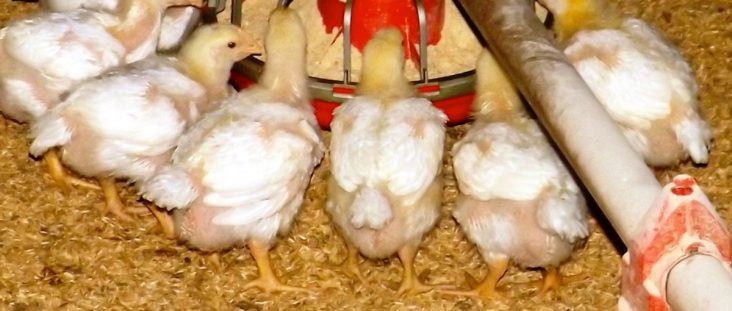Chicken industry applauds renewal of U.S. trade efforts to end Chinese tariffs
by May 10, 2016 4:36 pm 297 views

Chicken companies like Tyson Foods, Simmons Foods and other players are making plenty of money these days but they are not making much of it in China. That market is hard to tap, primarily because of government red tape, tariffs and export bans.
As one of the main export destinations for products like chicken paws and wingtips, China is an important market to the United States. The sale of these products added considerable value to the U.S. broiler industry, and the duties imposed by China have hindered access to this important market, according to the industry.
Officials with the office of United States Trade Representative (USTR) are asking the World Trade Organization to take action against China for what they say is a failure to eliminate the anti-dumping and countervailing duties on U.S. chicken exports that were imposed in 2009. The National Chicken Council and USA Poultry and Egg Export Council applauded the actions of trade representatives and senatorial support on this issue, knowing full well there is a chance of trade retaliation by China.
“We are also grateful for the support of U.S. Senators Chris Coons (D-Del.), Johnny Isakson (R-Ga.), Tom Carper (D-Del.), and John Boozman (R-Ark.), as members of the Senate’s “Chicken Caucus,” for their steadfast support of U.S. chicken producers in this case,” the trade groups noted in the release on Tuesday (May 10).
Tom Super, spokesman for NCC, told Talk Business & Politics that U.S. processors simply want China to adhere to WTO rules and protocol which they signed up for when they became a member country.
He said before China imposed duties in 2009, U.S. poultry exports to China averaged between 650,000 and 700,000 metric tons annually – equal to the exports to Mexico last year. China is no longer among the importers of U.S. chicken because of the tariffs and more recently the Avian Influenza ban the country has had on U.S. chicken since January 2015, The bird flu issue must also be resolved before chicken feet and other popular export chicken parts can be shipped to China.
In 2013, a WTO dispute settlement panel found that China’s anti-dumping and countervailing duties violated its WTO obligations. Despite that decision, China has still refused to remove the duties.
Super said the U.S. government has tried to work with China since 2013 to resolve the issue consistent with the panel’s decision, but China has failed to abide by the ruling and to meet its obligations.
The American Farm Bureau weighed in on the topic that not only impact chicken companies but also the contract farmers who raise the chickens.
“We agree: China is misusing anti-dumping rules. China’s actions keep U.S. poultry from being sold to Chinese consumers at a price that reflects a fair profit for American farmers and real value for its own citizens,” said Zippy Duvall, American Farm Bureau Federation president. “Trade enforcement is an essential part of an effective trade policy. Farm Bureau supports trade that brings fair prices to farmers and good nutrition to a rapidly-growing population around the world. We applaud USTR for pursuing this action.”
Springdale-based Tyson Foods, the country’s largest chicken processor, said it does not break out specific country exports, but the company supports the USTR decision to continue challenging China at the World Trade Organization for its duties on U.S. poultry.
“We believe in open trade and hope that our government’s latest action will result in a resolution of this issue soon. Tyson Foods appreciates the commitment of this Administration and many members of Congress, including Sen. Boozman, to ensuring fair access for U.S. poultry to the Chinese market,” said Tyson spokesman Worth Sparkman.
Siloam Springs-based Simmons Foods said it is interested in exporting more competitively to China which tariff removals would allow. The company is not now exporting to China.
While Tuesday’s efforts focused mainly on the tariffs, Super said the bird flu ban imposed by China more than a year ago does not comply with WTO rules, which ban a county or region where the disease is found. China banned the whole country. He said the trade groups would also like to see the issue addressed if the U.S. and WTO can get China back to the negotiation table.
